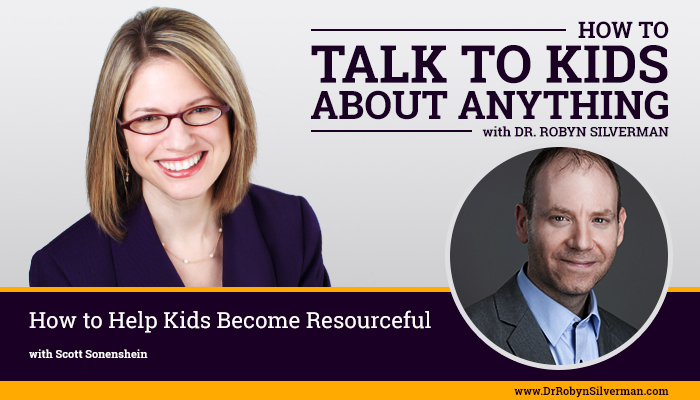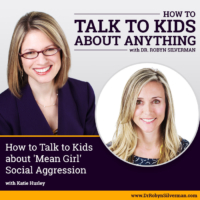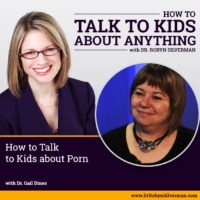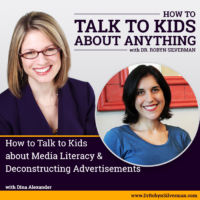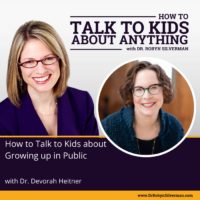Podcast: Play in new window | Download
Subscribe: Apple Podcasts | RSS | More
How to talk to kids about resourcefulness
This podcast will focus on how to help our kids succeed with the power of less. Is less really more? Scott Sonenshein helps us decipher how we can all be more resourceful and stop seeking more when we really already have everything we need. Scott Sonenshein gives us tips and scripts based on his new book, Stretch, so that we can talk to our kids about being resourceful in a world that is constantly screaming more, more, more!
Special Guest: Scott Sonenshein
This podcast provides:
- Tips: How to help our kids do more with less and become more resourceful. How can we be more creative? Scott also talks about taking “field trips,” creative atypical birthday parties, reaffirming play, modeling, little seed creativity.
- Scripts: Saying no to our children, what to say when your child wants a new toy
- Steps: Taking a child through how to be resourceful when wanting a new toy. How can we look at what we have in unique ways?
- Barriers to success: By saying yes to everything we create a dependence on “more stuff” and we rob our kids of the ability to get creative.
Important Messages:
- We are all born resourceful. There is a lot we can teach kids about resourceful—but we can also learn from them.
- We need to say ‘no” to children so they can be more creative with what they have and become less dependent on more “stuff.”
- We learn to keep going after more (what Scott Sonenshein calls “chasing”) with happens through comparison.
- Kids are naturally creative- let’s allow them to be creative!
- Creativity is needed to be resourceful.
- We can do our best work when we aren’t always looking for “more” but when using what we have in creative ways.
- It’s important to model resourcefulness if we want to see resourcefulness from our children!
Notable Quotables:
- “Kids are naturally born resourceful. You leave a pot around for a two-year-old and they’re going to have a lot of creative ways to use that pot that don’t involve cooking.”
- “Raising resourceful kids is something we should talk about but there is also the other side of this—what can we learn from our children in terms of how they approach the objects and tools around them. We must try to recapture some of what we started with.”
- “The value of saying no goes a long way for two reasons. First, when we say ‘no,’ we are teaching children to break a dependence on needing ‘more’ to find satisfaction and happiness in life. When we keep saying yes, we create this dependence that their satisfaction is linked to having more stuff. Second, when we keep saying yes to all of our children’s requests, we take away their space to work with what they already have in creative ways.”
- “We don’t want to say no all the time but there is something to be said for raising resourceful children with an occasional ‘no.’
- “We need to teach children that it’s not what you have, but what you do with what you have and you can do a lot with what you have!”
- “Our children are often full of good ideas we need to just listen to them better.”
- “It’s important to ask ourselves the question; are we raising our children in ways that espouse the same values that we espouse? Children will see the contradictions. I think it’s always hard to raise children in ways that we, ourselves, don’t live.”
- “We need to teach our children that sometimes, when we have our backs against the wall, we can do our best work.”

